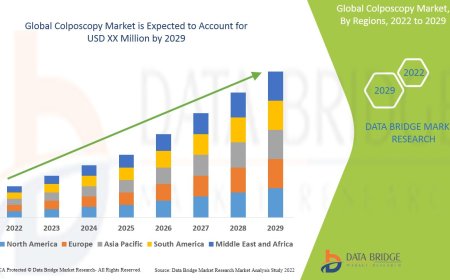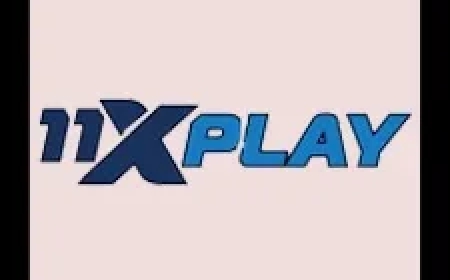Blockchain Technology in Energy Sector Market to Reach USD 547.88 Billion by 2034, Transforming Energy Trading and Grid Management
Blockchain Technology in Energy Sector Market to Reach USD 547.88 Billion by 2034, Transforming Energy Trading and Grid Management
Market Overview
Theglobalblockchain technology in the energy sector marketis poised for explosive growth, with its value projected to surge fromUSD 2,005.62 million in 2024toUSD 3,469.72 million in 2025, and ultimately reachUSD 547.88 billion by 2034. This extraordinary expansion reflects acompound annual growth rate (CAGR) of 75.5%over the forecast period (20252034), marking one of the most transformative shifts in energy innovation.
Originally designed for cryptocurrency,blockchain technologyhas rapidly evolved to revolutionize how energy is produced, traded, and consumed. Its decentralized, tamper-proof architecture is helping reshape global energy systemsenhancing transparency, efficiency, and sustainability.
As the energy landscape transitions towarddecentralization,decarbonization, anddigitization, blockchain is emerging as a key enabler of the next-generation energy ecosystemempowering prosumers, supporting peer-to-peer (P2P) trading, and optimizing renewable integration and carbon credit management.
Key Market Growth Drivers
- Rise of Decentralized Energy Markets
Blockchain facilitates directP2P energy trading, enabling consumers to sell surplus solar or wind energy without traditional intermediaries. This decentralization fosters a new class of energy usersprosumersand democratizes energy access.
- Integration of Distributed Renewable Resources
The rapid deployment ofrooftop solar,wind turbines, andbattery storagehas created demand for transparent systems to track, verify, and settle decentralized energy generation in real time. Blockchains smart contract capabilities support efficient integration and real-time energy accounting.
- Transparency and Grid Security
Blockchains immutable ledger improvesdata integrity, prevents fraud, and strengthenscomplianceacross energy transactionsboosting trust among regulators, utilities, and end-users while enhancing grid resilience.
- Carbon Credit Management and Emission Tracking
With growing urgency aroundclimate change, blockchain provides a reliable, automated system for verifying and tradingcarbon creditsand trackinggreenhouse gas emissions, facilitating global decarbonization efforts.
Browse More Information:
Market Challenges
Despite its vast potential, blockchain in the energy sector faces several implementation hurdles:
- Regulatory Uncertainty
The absence of standardized international frameworks for blockchain-based energy trading limits market scalability and creates legal ambiguity for participants.
- High Capital Requirements
Deploying blockchain across energy infrastructureparticularly when integrating with legacy systemsdemands significant investment, which can be a barrier for smaller utilities or developing regions.
- Network Scalability
Energy markets handle millions of transactions daily. Ensuring blockchain networks can scale while maintaining speed and security remains a technical challenge that developers are still working to overcome.
Market Segmentation
By Blockchain Type
- Public Blockchain Ideal for transparent, community-based trading and microgrid applications.
- Private Blockchain Offers enhanced control and privacy, suitable for corporate and industrial energy operations.
- Consortium Blockchain Enables collaboration among stakeholders while balancing transparency and control.
By Application
- Peer-to-Peer Energy Trading
- Grid Management
- Energy Financing
- Electric Vehicle (EV) Charging and Integration
- Renewable Energy Certificate Tracking
P2P tradingis currently the dominant application, driven by residential solar adoption and community energy models.Grid managementandEV integrationare fast-growing segments, reflecting the shift toward more dynamic and decentralized energy networks.
By End-User
- Residential
- Commercial
- Industrial
- Utilities
Utilities lead in blockchain adoption, leveraging it for grid optimization and DER integration. However,residential adoptionis accelerating as homeowners install solar systems and participate in local energy trading platforms.
Regional Analysis
North America
North America leads global adoption, with theUnited Statesat the forefront of blockchain energy innovation. Backed by strong clean energy goals and early pilot programs, the region is advancing applications incarbon tracking,smart grids, anddecentralized trading.
Europe
Europe is a key player, driven by progressive energy policies and climate goals. Countries likeGermany,the Netherlands, and theUKare supporting blockchain projects focused oncommunity energy,microgrids, andrenewable certificate tracking.
Asia-Pacific
Asia-Pacific is poised for thefastest growth, supported by massive investments in smart grid technologies and renewable energy expansion. Countries includingChina,India,Japan, andSouth Koreaare deploying blockchain to manage complex, decentralized energy infrastructure.
Latin America and Middle East & Africa (MEA)
Emerging economies in these regions are turning to blockchain toimprove energy access,optimize microgrids, and supportrural electrification. Countries such asBrazil,UAE, andSaudi Arabiaare developing pilot programs to advance blockchain-powered energy solutions.
Competitive Landscape
The blockchain-in-energy market is dynamic, with global technology leaders, energy companies, and startups racing to deliver secure, scalable solutions. Strategic partnerships and R&D investment are central to driving innovation across the energy value chain.
Key Companies Include:
- Accenture Offers consulting and deployment services for blockchain-enabled P2P energy trading and grid platforms.
- ConsenSys Develops decentralized applications for secure, user-owned energy transactions.
- Energy Web Foundation Delivers open-source blockchain tools designed for clean energy markets and DER integration.
- Ethereum Foundation Supports many decentralized energy platforms using its programmable blockchain infrastructure.
- GridPlus (Grid+) Creates integrated hardware/software platforms for blockchain-based direct energy purchases.
- Honeywell Incorporates blockchain into industrial energy systems for transparency and performance insights.
- IBM Provides enterprise-grade blockchain for asset tracking, trading, and emission reporting in energy networks.
- LO3 Energy Pioneers blockchain-based local energy trading through microgrids and community power markets.
- Microsoft Offers Blockchain-as-a-Service (BaaS) to accelerate digital energy transformation.
- Power Ledger Specializes in real-time energy and certificate trading across P2P and utility-scale systems.
- R3 Corda Enables secure smart contracts and regulatory compliance in enterprise energy environments.
- SAP Develops blockchain-integrated solutions for energy logistics and utility management.
- Siemens Integrates blockchain into digital grid platforms to enhance flexibility and transactional reliability.
- VeChain Offers blockchain-based supply chain and emissions tracking for the renewable energy sector.
Future Outlook
The convergence ofblockchain with AI, IoT, and edge computingwill create intelligent energy networks capable ofself-optimization,predictive analytics, andreal-time responsiveness. This will be particularly impactful forelectric vehicle (EV) ecosystems,virtual power plants (VPPs), andautonomous grid operations.
Asregulatory frameworksmature andinteroperability standardsemerge, blockchain is expected to become foundational to energy market operationsempowering consumers, improving grid resilience, and enabling real-time, decentralized energy transactions.
Conclusion
Theglobalblockchain technology in energy sectormarket, projected to reach USD 547.88 billion by 2034, represents a paradigm shift towards transparent, secure, and democratized energy systems. Companies investing in blockchain innovation, strategic partnerships, and consumer-centric solutions are well-positioned to lead this transformative journey.
As nations strive for net-zero targets and energy independence, blockchain will play an integral role in enabling smart, efficient, and inclusive energy ecosystems worldwide.
More Trending Latest Reports By Polaris Market Research:
Data Collection and Labelling Market
Sustainable Manufacturing Market
Tandem Piston Compressor Market
Drain Cleaning Equipment Market
Sustainable Manufacturing Market
Rubber Processing Chemicals Market
Rubber Processing Chemicals Market





















